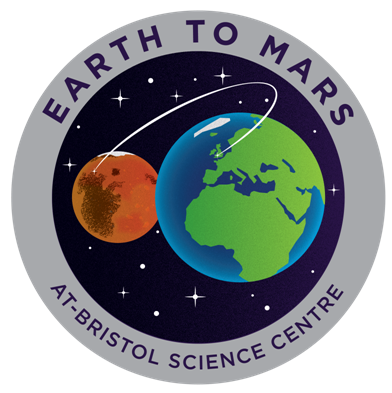- 16 Jan, 2016
- read
Students will develop their skills in all four STEM disciplines – programming robot ‘rovers’ and deploying them to carry out real missions and take samples in a search for signs of life as they map a replica Martian landscape.
Personal notes
I worked with the @Bristol science center team to bid for ESA funding, design and trial the missions, develop the mission control software, train the science communicators and help to faciliate the pilot and first set of workshops during British science week.
To allow the robots to ‘sample’ various atmospheric conditions we built a Martian landscape with hundreds of embedded RFID tags. The robots were programmed to move about and take a sample by reading an RFID tag.
The mission control website was written in Python using the Flask framework. I worked with a web designer to make it look nice and futuristic. After the students learnt to drive the robots around and take samples, the mission control graphs of methane concentration, temperature and humidity slowly resolved until at the end of the workshop students could start make predictions about where life would most likely be found.
One of the aspects I enjoy when running workshops is when the participants suprise me by pushing the boundaries of the workshop. An example of this was when one group of students, frustrated by not knowing how many points their team had contributed, used the website’s API to download the samples, categorise them by team and then print a score table.

Learning objectives
- Learn about the European Space Agency’s Aurora Mission and ExoMars rover programme
- Consider what the signs of extraterrestrial life might be and how to look for them
- In small teams (max 3) use Python computing language to programme a newly developed robot rover
- Program a robot to perform tasks on the Martian landscape, including manoeuvring; taking photos; avoiding obstacles
- Program robot to take reading of temperature, CH4, humidity and location and upload this information to a class map
- Work collaboratively - sharing learning to jointly map the whole terrain and interpret data
- Recognise the many and varied roles that contribute to a successful mission of this sort
- Reflect on the opportunities that may be open to them in this and related STEM sectors
References
Matt and I met over a year ago when we were preparing a grant application to the UK Space Agency for a computer coding school activity themed around robot exploration of Mars. Matt had previously collaborated with other people in At-Bristol Science Centre and was recommended as a good person to work with. Our bid was successful and Matt and I worked closely together over the next year to project manage and co-develop an activity day for students aged 13 to 16 within a team of six.
Matt was a pleasure to work with throughout the whole process – from initial brainstorming to final delivery and evaluation, immediately understanding what was needed and bringing a professionalism and technical expertise that enabled the project to evolve in a very innovative and highly successful way. His considerable knowledge of coding, hardware and education meant that the end result was different from but far more exciting than we had initially planned, with Matt developing elegant and creative solutions to the inevitable technical issues encountered with any project of this size.
Equally importantly, Matt quickly formed very positive and productive working relationships with the whole team – recognising the contributions and skills of each of those involved, and inspiring them with his calm, humorous and open way of working and relating to others. He is not only a coding expert but also a skillful educator, and showed a talent for teaching the young people attending the day in a way that they responded to well and that enabled them to learn effectively and enjoyably.
He was consistently reliable and committed - delivering everything on time and on budget to a very high standard. I cannot recommend him highly enough - whether as collaborator, employee or consultant.
Kathy Fawcett, PhD, BSc Hons, PGCE Education Manager, At-Bristol Science Centre